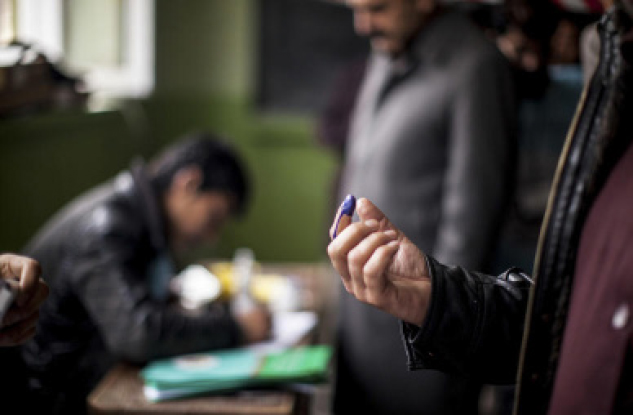Public will, which is demonstrated through election, constitutes the cornerstone of democracy. To form a civil society where people be able to exercise their rights and freedoms, a state needs to conduct a fair and free election. However, electoral rigging will be a blow to democracy and a violation of the public right.
The nascent democracy in post-Taliban Afghanistan has been a gleam of hope for the war-weary Afghans who dreamt of practicing their rights and liberties in a violence-free and corruption-free country. With a view to breathing a sigh of relief, Afghan men and women flocked to ballot boxes in 2004 to elect the president and in 2005 to elect their representatives in parliament and provincial council. The public participation in power was a significant landmark in the history of Afghanistan.
However, this nascent democracy was weakened in the following years. For example, the presidential and provincial council elections on 20 August 2009 were undermined by insecurity, violence, low voter turnout, ballot stuffing, intimidation and other electoral fraud.
The Third presidential election was held on 5 April 2014 and had its pros and cons. On the one hand, this election marked the first peaceful transition of power from one leader to the next. On the other hand, the massive electoral fraud put this election under a serious question. The political dispute over the result of the election between Ashraf Ghani and Abdullah Abdullah lasted for months due to the massive fraud. Subsequently, Ghani and Abdullah signed a power-sharing agreement to form the National Unity Government (NUG). Nonetheless, the Independent Election Commission (IEC) publically confirmed the official results of the 2014 election more than a year and half after the vote and declared Ashraf Ghani as president.
The political haggling between Ghani and Abdullah about the electoral result bred a sense of mistrust between state and nation and marred the reputation of the IEC. The announcement of result after the establishment of NUG was not only too late but also changed into a political satire in the social media. Thus, the level of mistrust increased and some still view the IEC with a sense of distrust, though it has been overhauled following the electoral fraud in 2014 election.
The gap between state and nation ensued for several reasons: First, the political figures who made mouth-watering promises in their electoral campaigns failed to fulfill them. Despite their active participation in presidential, provincial and parliamentary elections, Afghans were not able to exercise their rights and freedoms without barrier, tackle unemployment, get rid of corruption and bribery, etc. To their unmitigated chagrin, their ballots could not protect them from bullets. Some individuals’ fingers were sliced for their participation in the election. The challenges continued unabated. For instance, civilian casualties escalated, Afghanistan was seen in the list of top corrupt countries and drug producers, the level of poverty and unemployment increased, nepotism remained strong, etc.
Civilian casualty was of the highly challenging issues within the past and present. According to a report recently released by the UNAMA, 765 civilians were killed and roughly 1500 others were wounded in the first three months of the current year, which is equal to the casualties of the first three months of the two past years. Hence, the bloodshed did not stop.
Secondly, the wall of mistrust grew taller between state and nation as a result of political disputes among high-ranking officials which sidelined some officials, including the First Vice President Gen. Abdul Rashid Dostum, from the government. Similarly, the dispute between the former provincial governor of Balkh province Atta Muhammad Noor and presidential palace added to this mistrust.
Third, the violation of Constitution and poor law-enforcement also eroded the public trust. The upcoming parliamentary election, for which the registration has begun, is a reminder of the violation of law since more than two years passed from the legal period of this election.
Overall, a number of people believe that their ballots will make no changes and, therefore, the voter turnout will decline dramatically. People still view the IEC and candidates with mistrust.
The aforementioned challenges suggest that the government could not win the public trust and the gap between state and nation has grown wider in recent years. Much has been said but little was done, which leaves a lot to be desired. Afghans’ dream for a democratic and violence-free state did not come true. They are highly prone to political turbulence and economic crisis. Their lives are lost and their rights and freedoms are violated on day-to-day basis. If the upcoming election is not monitored closely and the past fraud repeats, people’s ballot will carry no significance. Thus, the government has to win the public trust through ensuring the transparency of the election.
Home » Opinion » Election in the Air of Mistrust
Election in the Air of Mistrust
| Hujjatullah Zia

